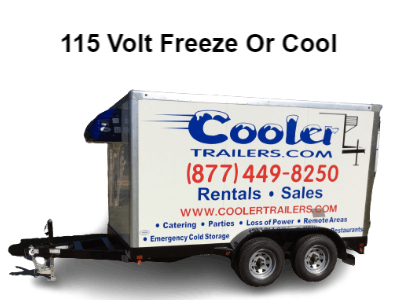Maximizing Effectiveness: Exactly How to Pick the Best Trailers Refrigeration
When it involves selecting the most suitable refrigeration system for trailers, the importance of making the most of efficiency can not be overstated. From power intake to cooling down capability, the choices made hereof can considerably influence functional prices and general performance. In a market flooded with alternatives, browsing the nuances of selecting the very best refrigeration remedy needs a nuanced approach that considers numerous aspects. By thoroughly assessing energy performance, cooling down capacity, maintenance requirements, and cost-effectiveness, businesses can ensure they choose that straightens with their certain requirements and purposes.
Energy Effectiveness Factors To Consider
When evaluating trailers refrigeration systems, prioritizing energy performance is important for enhancing functional prices and reducing environmental impact. Energy-efficient refrigeration systems can result in considerable price financial savings over time, making them a wise financial investment for organizations looking to improve their bottom line. By selecting trailers with high power effectiveness rankings, firms can reduce their carbon impact and add to a much more lasting future.

Regular upkeep and maintenance are additionally important to make certain that trailers refrigeration systems run at peak performance degrees. Basic tasks like cleaning up coils, inspecting refrigerant levels, and inspecting door seals can help prevent energy waste and prolong the life-span of the tools. Inevitably, prioritizing power effectiveness in trailers refrigeration systems is a critical choice that can yield lasting benefits for both businesses and the setting.
Air Conditioning Capability Analysis
To make certain optimum performance of trailers refrigeration systems, a vital element to evaluate is the cooling capability, which straight influences functional effectiveness and temperature upkeep. Cooling capacity describes the capacity of the refrigeration unit to remove heat from the trailer effectively. When examining cooling capacity, aspects such as the dimension of the refrigerated room, the desired temperature array, insulation quality, and the kind of cargo being transferred need to be taken into consideration. It is vital to pick a refrigeration unit with a cooling capability that matches the details requirements of the cargo being delivered to keep the desired temperature constantly.
An exact evaluation of cooling down ability aids avoid issues such as temperature fluctuations, irregular air conditioning, or not enough air conditioning, which can jeopardize the high quality and safety of subject to spoiling goods. In addition, choosing a refrigeration device with the proper cooling ability can cause energy cost savings by making sure that the system runs successfully without unnecessary pressure. Routine upkeep and tracking of the air conditioning capability are vital to make certain that the refrigeration important source system functions efficiently and meets the needs of the transportation procedure.

Upkeep and Service Demands
Ensuring regular maintenance and service adherence is crucial for making the most of the durability and effectiveness of trailers refrigeration systems. Routine maintenance helps identify and address possible concerns before they rise, lowering the risk of pricey failures and making certain uninterrupted procedure. It is advised to develop a comprehensive upkeep routine that includes jobs such as inspecting insulation, looking for leaks, cleansing condenser coils, and verifying temperature level settings.
Along with regular maintenance, timely maintenance in instance of any malfunctions is necessary to stop more damage and maintain ideal efficiency. Engaging qualified technicians for repair services and servicing makes certain that the refrigeration system is dealt with appropriately and effectively. Keeping thorough records of maintenance and service history can aid in tracking the system's efficiency with time and identifying any type of persisting problems that may need special attention.

Cost-Effectiveness Analysis
Frequently examining the cost-effectiveness of trailers refrigeration systems is crucial for maximizing functional costs and total effectiveness. When carrying out a cost-effectiveness analysis, it is essential to think about not just the ahead of time financial investment needed for the refrigeration system but also the long-term prices associated with maintenance, energy usage, and prospective downtime (trailer refrigeration). Contrasting various versions and brand names based upon their preliminary expense, energy effectiveness scores, and upkeep demands can supply important insights right into which system provides the best worth for your particular needs
In addition, determining the total cost of possession over the anticipated lifespan of the refrigeration system can aid establish the most economical option over time. Variables such as energy effectiveness, integrity, and ease of servicing need to all be taken into account when examining the total official statement cost-effectiveness of a trailers refrigeration system.
Tailored Solutions for Company Requirements
When maximizing operational costs and effectiveness in trailers refrigeration systems, customizing solutions to meet certain organization needs becomes vital. trailer refrigeration. Each organization has distinct demands based upon the nature of its procedures, the kinds of goods being moved, and the ranges traveled. To guarantee the refrigeration system works ideally, it is crucial to consider elements such as the called for temperature level range, insulation requirements, energy performance, and upkeep check it out frequency
Tailored services can include picking the ideal refrigeration system size to match the trailer dimensions, selecting in between electric or diesel-powered systems based on usage patterns, and integrating telematics for real-time tracking. For businesses that frequently carry temperature-sensitive products over cross countries, spending in dual-zone refrigeration units or multi-temperature systems might be useful. Additionally, personalizing the control setups to line up with details temperature demands and carrying out remote surveillance capabilities can enhance operational control and efficiency.
Conclusion
In conclusion, when selecting a refrigeration trailer, it is very important to focus on power performance, cooling down capacity, upkeep requirements, and cost-effectiveness. Tailoring the choice to meet specific business needs can bring about enhanced performance and reduced operating expense. By thoroughly thinking about these elements, companies can optimize effectiveness and guarantee that their refrigeration needs are fulfilled properly.
When reviewing trailers refrigeration systems, focusing on energy effectiveness is important for maximizing operational prices and decreasing ecological effect. Inevitably, prioritizing power efficiency in trailers refrigeration systems is a critical decision that can generate long-term benefits for both organizations and the environment.
To ensure optimum performance of trailers refrigeration systems, an essential aspect to examine is the cooling ability, which directly affects functional efficiency and temperature upkeep (trailer refrigeration).Ensuring routine upkeep and solution adherence is essential for maximizing the longevity and effectiveness of trailers refrigeration systems. To make certain the refrigeration system functions optimally, it is vital to take into consideration factors such as the needed temperature level array, insulation needs, energy effectiveness, and maintenance regularity